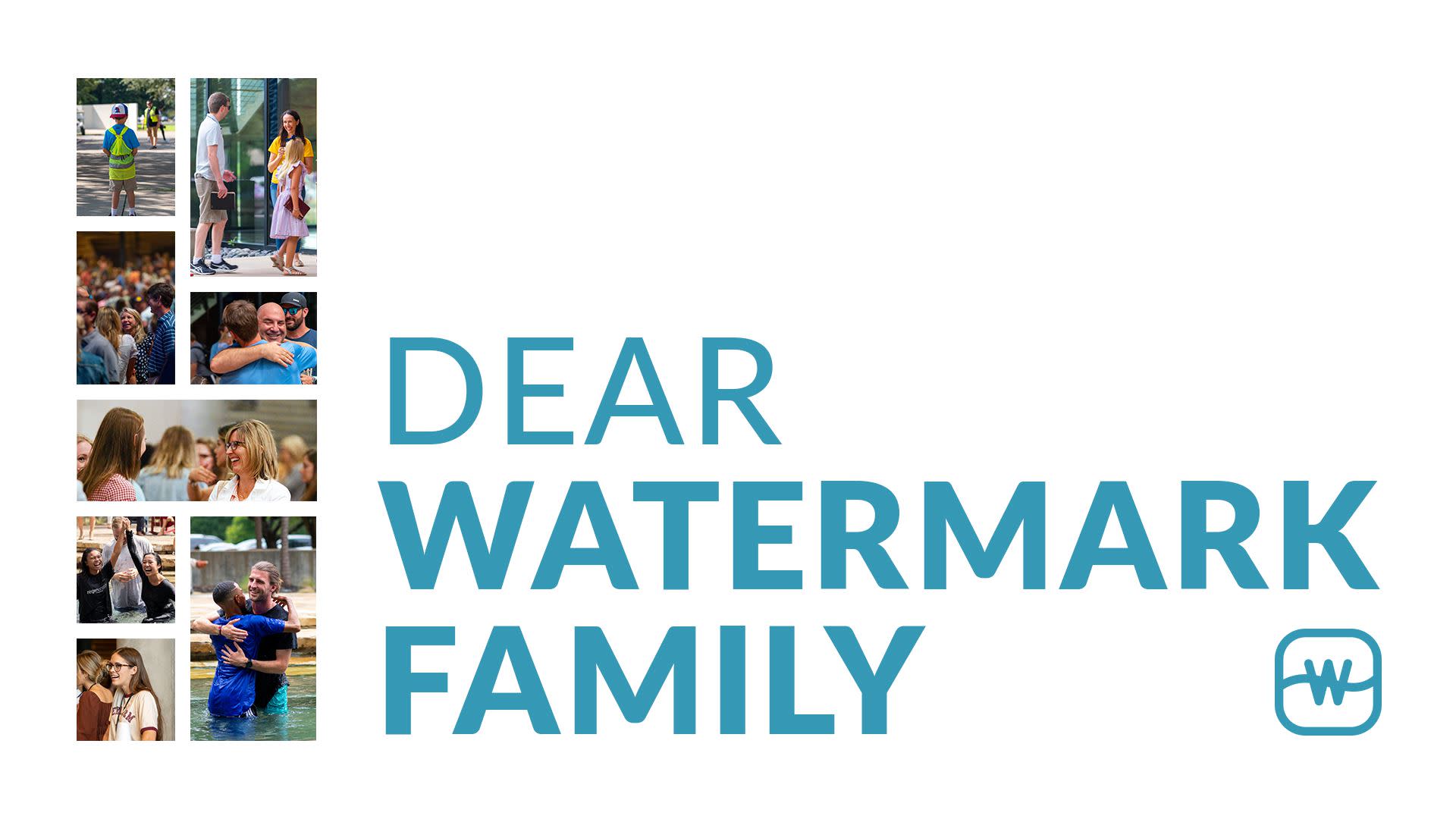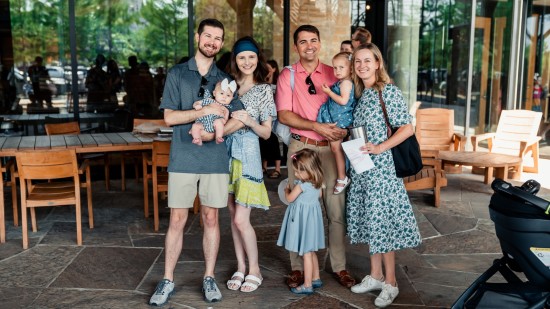Dear Watermark Family,
While driving across country late one afternoon, my wife abruptly warned me to take the next exit off the highway. Although we couldn’t see the long line of cars stopped on the road ahead of us, the GPS on her phone displayed a better route that saved us hours of time. I remember seeing the line of cars backed up for miles from the side street we chose and thinking how grateful I was not to be stuck in that traffic.
In the same way accidents block the highway and prevent us from reaching our destination, we run into barriers that prevent us from experiencing healthy community. However, with a little foresight and planning, we can avoid them.
See if you can relate to the five barriers to healthy community listed below. What part might you play in either creating or removing them?
“I Think…”
The first barrier to healthy community comes from an experienced-based mindset that begins with the words, “I think.”
“I think” statements touch on a wide variety of topics, from “I think you should break up,” to “I think you should start school,” or “I think you should tell him ‘No.’” Proverbs warns us, “A fool takes no pleasure in understanding, but only expressing his opinion” (Proverbs 18:2).
Although we learn valuable lessons from our past experiences, nothing replaces the Bible when offering counsel. Yet, how many of us even bring or open a Bible during our community group time?
If you want to build healthier community, let Scripture serve as your guide. Ask yourself, “What does the Bible have to say about that?” before offering your opinions.
“What's in it for me?”
The question “What’s in it for me?” reveals another barrier to fostering healthy community.
When we spend time with others only focused on ourselves, we miss out not only on an opportunity to serve them, but also to grow our own faith. Yet, far too often, we judge the effectiveness of our community group time by whether we feel like our needs are met. This prevents us from listening, empathizing, and genuinely caring for the friends in our group.
Philippians 2:3-4 states, “Do nothing from selfish ambition or conceit, but in humility count others more significant than yourselves. Let each of you look not only to his own interests, but also to the interests of others.” What would happen if you prayerfully considered the needs of those in your group and asked the Lord how He might use you to meet those needs?
If you want to build healthier community, take the focus off yourself and serve those the Lord has placed before you.
“What will they think of me?”
The third barrier to experiencing healthy community often comes from a place of fear and insecurity. The “What will they think of me?” mindset keeps us from sharing truthfully with others. Instead, we share partial truths and keep people at a distance. Consequently, we rob ourselves of ever feeling known and accepted.
James 5:16 says, “Therefore, confess your sins to one another and pray for one another, that you may be healed.” Healing comes through confession. Imagine what would happen in your community group if everyone felt safe enough to confess their sins, even those that are hardest to share.
If you want to build healthier community, don’t let the voice of shame keep you from experiencing the freedom the Lord intends.
“Who are you to say that?”
Another barrier springs from pride. Defensive, and often ashamed, we cut others off and do not allow them to speak into our lives. Not liking what they have to say, regardless of how right they may be, we dismiss their authority and resent their counsel.
We often bristle against words like authority and submission. Thinking we are smart enough to make our own choices and cheered on by a world that worships autonomy, we fight against acknowledging our need for others. Like a child establishing independence, we pronounce to others, “Mine.” Defiantly, we seek independence and attempt to stand alone. “There is a way that seems right to a man, but its end is the way to death.” (Proverbs 16:25)
Be careful whenever you find yourself saying, “Who are you to say that?” You just may reject the very counsel you need and God’s ordained provision.
“I’m too busy.”
The final barrier to experiencing healthy community may be the most common. The “I’m too busy” trap reveals a failure to prioritize our time.
Relationships take time and energy. Ecclesiastes 4:9-12 illustrates the strength that comes through healthy relationships: “Two are better than one, because they have a good reward for their toil. For if they fall, one will lift up his fellow. But woe to him who is alone when he falls and has not another to lift him up! Again, if two lie together, they keep warm, but how can one keep warm alone? And though a man might prevail against one who is alone, two will withstand him—a threefold cord is not quickly broken.”
As a pastor, I am often amazed by the number of ways I see community groups care for one another. I witness people make extraordinary sacrifices to care for the financial, physical, and emotional needs of those in their group.
Yet, on the other hand, I also see the pain and heartache that comes when people fail to prioritize community. Suddenly, in their greatest time of need, they have no one to call. Then, in desperation, they reach out to the church while wrongly assuming that caring, supportive relationships can somehow be formed overnight. If you fail to prioritize community, you will eventually find yourself in need but without the depth of relationships to support you.
If you want to experience healthy community, make time with those in your group a top priority. You will be glad you did!
Intuitively, we recognize the barriers to healthy community and how we contribute to them. Pride, selfishness, fear, insecurity, and shame are powerful forces working against us. Yet, by the power of the Holy Spirit and armed with the truth of God’s Word, we can experience all that the Lord has for us. At the same time, we can serve as a tangible means of the Lord’s grace and provision for others.
Chances are, either you or someone in your group feels some distance from the others. What can you do to overcome any barriers they may feel and reaffirm your care for them today?
See you on Sunday,

If you would like to join a community group or your group is running into these barriers, please reach out to our Community Team at community@watermark.org. We’d love to help you!


